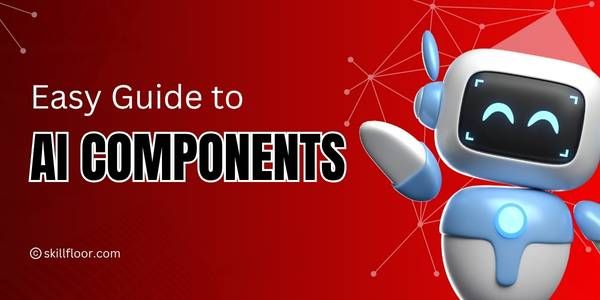Exploring the Latest Trends in AI Certification: Emerging Technologies and Skillsets
Explore the latest trends in AI certification, delve into emerging technologies, and master in-demand skillsets. Stay ahead with our comprehensive insights.

The field of Artificial Intelligence (AI) has witnessed an unprecedented surge in recent years, transforming industries, shaping businesses, and impacting our daily lives. As AI continues to evolve, professionals seeking to stay competitive in this rapidly changing landscape are turning to AI certifications to gain a competitive edge and validate their expertise in the latest technologies and skill sets. We will explore the latest trends in AI certification, focusing on the emerging technologies and skill sets that are shaping the future of AI.
Reinforcement Learning Certifications
Reinforcement Learning (RL) is a subfield of Artificial Intelligence (AI) that focuses on developing algorithms capable of making decisions by learning from their interactions with an environment. In RL, an agent learns to achieve a goal in an uncertain, complex environment by taking actions and receiving feedback in the form of rewards or penalties. The goal of RL is to optimize the agent's decision-making process over time to maximize the cumulative rewards obtained.
RL has found applications in various domains, including robotics, game playing, autonomous vehicles, finance, recommendation systems, and more. As the demand for RL expertise increases, professionals are seeking certifications in RL to showcase their skills, stay updated with the latest advancements, and demonstrate their ability to apply RL in real-world scenarios.
Explainable AI (XAI) Certifications
-
Definition of Explainable AI (XAI) and its importance in AI systems.
-
Overview of the growing demand for XAI certifications in various industries.
-
Explanation of the challenges posed by black-box AI models and the need for transparency and interpretability.
-
Key principles and approaches used in XAI to make AI models more explainable.
-
Overview of popular XAI techniques such as LIME (Local Interpretable Model-Agnostic Explanations) and SHAP (SHapley Additive exPlanations).
-
Explanation of different levels of interpretability and how they cater to different stakeholders' needs.
-
Discussion of regulatory and ethical considerations surrounding the use of XAI in critical domains.
-
Examination of the impact of XAI on AI bias mitigation and fairness.
AI Ethics and Bias Mitigation Certifications
AI Ethics and Bias Mitigation Certifications are specialized training programs designed to equip professionals with the knowledge and skills to address ethical challenges and biases in artificial intelligence systems. As AI technologies become more prevalent in various applications, concerns about the potential societal impact and unintended consequences have grown. AI Ethics certifications aim to promote responsible and ethical AI development, deployment, and usage.
Brief explanations of AI Ethics and Bias Mitigation Certifications:
-
Understanding Ethical AI: These certifications focus on providing a comprehensive understanding of the ethical principles that should govern the development and implementation of AI systems. Professionals learn about the principles of fairness, transparency, accountability, and privacy in AI, enabling them to build AI models that align with societal values.
-
Bias Identification and Mitigation: In AI, bias refers to the unintentional discrimination or unfairness exhibited by AI models towards certain groups or individuals. AI Ethics certifications delve into techniques for identifying and mitigating bias in data, algorithms, and decision-making processes. Participants learn to implement strategies to ensure fair and unbiased AI systems.
-
Responsible AI Development: This aspect of the certification covers the end-to-end development lifecycle of AI systems. It involves understanding the impact of AI applications on users, stakeholders, and society. Professionals are trained to follow ethical guidelines and best practices during data collection, model training, and deployment to minimize harmful consequences.
-
AI Governance and Regulations: AI Ethics certifications explore legal and regulatory frameworks related to AI, both at the regional and global levels. Professionals gain insights into compliance requirements and learn how to navigate the evolving landscape of AI governance.
Edge AI Certifications
Edge AI certifications are specialized training programs designed to equip professionals with the knowledge and skills needed to develop and deploy AI algorithms on edge devices. Edge AI refers to the practice of running AI models directly on edge devices, such as smartphones, IoT devices, and embedded systems, without relying on cloud-based processing. This approach brings AI capabilities closer to the data source, enabling faster and more efficient real-time decision-making, reduced latency, and improved privacy by processing data locally.
Edge AI certifications typically cater to developers, engineers, and data scientists looking to optimize AI models for resource-constrained environments. These programs delve into various aspects, including model compression techniques that reduce the size of the AI model without significant loss of accuracy. Participants learn how to leverage hardware acceleration and specialized chip architectures to ensure optimal performance on edge devices.
Moreover, Edge AI certifications often cover topics related to energy efficiency, as power constraints are a crucial consideration for edge devices with limited battery life. Participants are taught how to design AI algorithms that strike a balance between accuracy and power consumption, making them well-suited for deployment in devices with limited resources.
AI for Natural Language Processing (NLP) Certifications
Natural Language Processing has seen tremendous growth in applications like chatbots, virtual assistants, sentiment analysis, and language translation. Certifications in AI for NLP are becoming popular among developers, data scientists, and linguists. These programs delve into cutting-edge NLP techniques, such as transformer models, contextual embeddings, and multilingual language understanding.
-
Understanding NLP Fundamentals: NLP certifications typically begin by covering the fundamental concepts and techniques used in natural language processing. This includes tokenization, stemming, lemmatization, part-of-speech tagging, and syntactic parsing. Participants learn how to preprocess textual data and extract valuable information from a large corpora of text.
-
Machine Learning for NLP: Machine learning plays a crucial role in NLP tasks. Certification programs delve into the different machine learning algorithms used in NLP, such as supervised and unsupervised learning, and how they apply to tasks like text classification, sentiment analysis, and named entity recognition.
-
Deep Learning and NLP: With the advent of deep learning, NLP has witnessed significant advancements, especially with transformer-based models like BERT, GPT, and XLNet. Certifications cover these state-of-the-art models, their architectures, and how to fine-tune them for various NLP tasks.
-
Sentiment Analysis: Sentiment analysis is a vital application of NLP, used to determine the sentiment or emotion behind a piece of text. NLP certifications teach participants how to build sentiment analysis models and apply them to social media monitoring, customer feedback analysis, and market research.
AI in Healthcare Certifications
AI in Healthcare Certifications are specialized training programs designed to equip healthcare professionals, data scientists, and technologists with the knowledge and skills required to leverage artificial intelligence in various aspects of the healthcare industry. As AI continues to revolutionize healthcare, these certifications have become increasingly popular and relevant for individuals seeking to make a significant impact in this domain.
-
Introduction to AI in Healthcare: The certification typically starts with an introduction to AI and its applications in healthcare. It covers the fundamental concepts of AI, machine learning, and deep learning, providing participants with a strong foundation.
-
Medical Image Analysis: AI has made significant strides in medical imaging, aiding in the diagnosis of diseases and the detection of anomalies in X-rays, MRIs, CT scans, and other imaging modalities. The certification delves into image analysis techniques, segmentation, feature extraction, and object recognition to empower participants with the skills needed to develop AI-driven medical image analysis systems.
-
Electronic Health Record (EHR) Analysis: Electronic health records contain vast amounts of valuable patient data. AI can be applied to extract insights, identify patterns, and support clinical decision-making. Certification programs cover data preprocessing, natural language processing (NLP) for extracting information from text, and predictive analytics using patient data.
-
Healthcare Predictive Analytics: Predictive analytics plays a crucial role in forecasting patient outcomes, identifying at-risk populations, and optimizing treatment plans. Participants learn how to apply AI models to historical healthcare data, enabling them to predict disease progression, patient readmissions, and treatment response.
-
Personalized Medicine: AI enables personalized treatment plans based on a patient's unique genetic makeup, medical history, and lifestyle. Certifications in this area cover genetic data analysis, pharmacogenomics, and precision medicine concepts.
Quantum AI Certifications
Quantum AI certifications are specialized credentials that validate expertise in the intersection of quantum computing and artificial intelligence. These programs typically cover quantum computing fundamentals, quantum algorithms, and their applications in AI. Graduates of these certifications are equipped to solve complex problems more efficiently, thanks to the unique computational capabilities of quantum systems. As the quantum AI field evolves, such certifications become valuable assets for professionals and researchers looking to stay at the forefront of cutting-edge technology.
As the AI field continues to evolve, keeping up with the latest trends and advancements through certifications becomes a strategic investment for individuals and organizations alike. Whether you are a data scientist, software engineer, or a business leader, exploring and pursuing AI certifications will undoubtedly prepare you for the exciting opportunities that lie ahead in the world of Artificial Intelligence.





























































